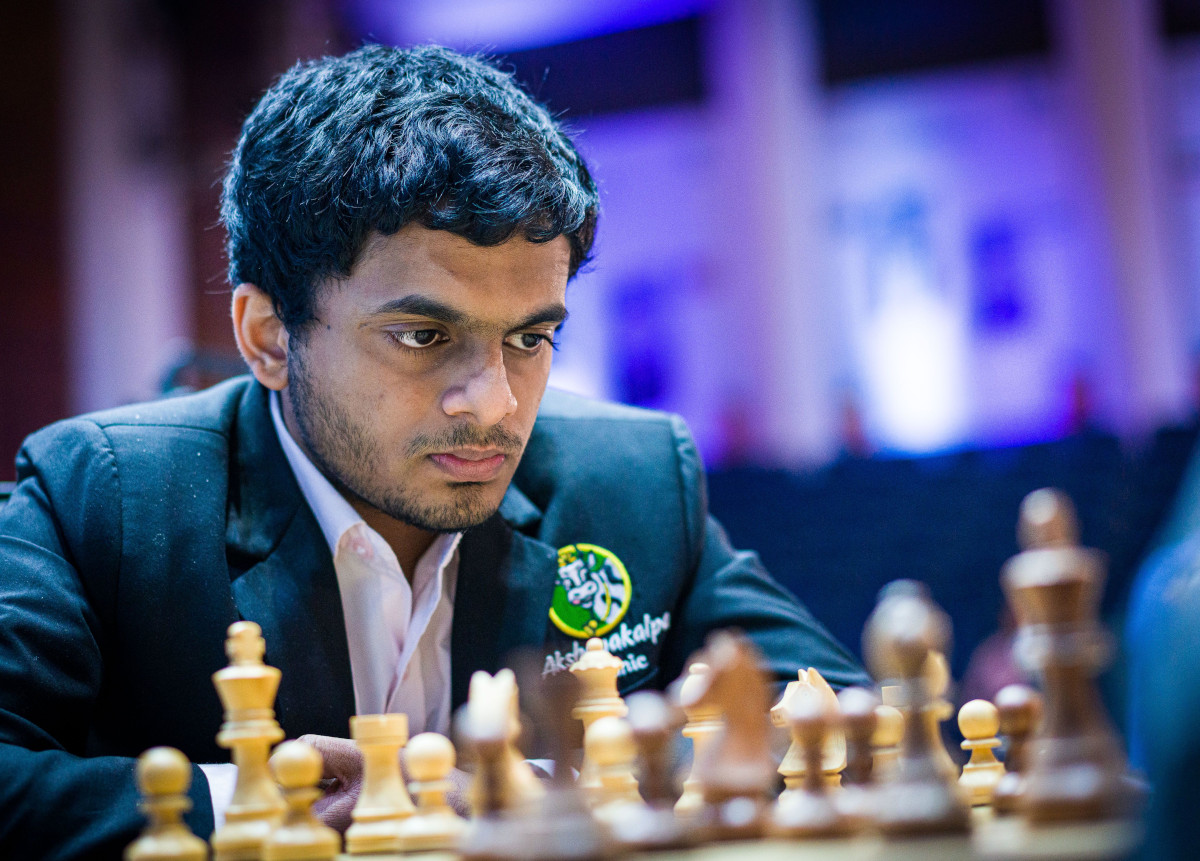In the vibrant, fast-evolving world of Indian chess, a new narrative is unfolding around one of its most prodigious talents, Nihal Sarin. Universally recognized as the `Speed Demon` for his electrifying prowess in rapid and blitz formats, Sarin has carved a niche for himself, often drawing praise from none other than Magnus Carlsen. Yet, as the curtain rises on the 2025 Chennai Grand Masters, a different, more nuanced story emerges: that of a prodigy grappling with the demanding, slow-burn discipline of classical chess, where his lightning reflexes sometimes yield to strategic missteps.
The Stagnation of a Prodigy
Sarin`s recent performances have sparked a conversation among analysts and his former mentors. “He has certainly stagnated,” noted Srinath Narayanan, his former trainer, after a challenging third-round loss at the Chennai Grand Masters. This candid assessment reflects a broader pattern: despite possessing immense talent, Sarin has struggled to convert winning positions into decisive points in classical games. Observers point to squandered advantages against elite players like Anish Giri and Vidit Gujrathi, along with a lost endgame against Vincent Keymer, painting a picture of missed opportunities rather than outright defeat.
The irony is palpable: a player capable of navigating complex positions in mere seconds finds the extended contemplation of classical chess a different beast entirely. His online chess.com profile tells a vivid story, boasting an astonishing 55,282 games played, with 22,823 of those in the one-minute bullet format. For perspective, the reigning world champion, Carlsen, has played just over 3,000 bullet games on the same platform. Nihal`s digital addiction to speed chess, while honing his tactical vision to an extraordinary degree, presents a unique challenge when the clock extends to hours, not minutes.
A New Mentor, A New Hope
Recognizing this critical juncture, Nihal has made a decisive move: he has enlisted the guidance of Grandmaster Vishnu Prasanna. This is not merely a coaching change; it`s a strategic realignment. Prasanna is celebrated for having meticulously shaped the career of none other than world champion Gukesh Dommaraju from a tender age, before Gajewski took the reins in 2022. Since March, Prasanna`s focus has been singularly on elevating Sarin`s classical rating, with an eye towards strong performances in prestigious events like the FIDE Grand Swiss and the FIDE World Cup.
“I have to adapt to Nihal. Definitely, there`s a lot of talent. I`ve never seen someone like him. But we`re seeing how to make it more practical, how to turn that talent into results.”
– GM Vishnu Prasanna
Prasanna readily admits that coaching Sarin presents a novel challenge compared to his work with Gukesh. The fundamental difference lies in their training methodologies. While Gukesh`s early development was largely independent of chess engines, Sarin`s entire chess worldview is intrinsically linked to online play. “We`re trying to figure out what can we do to make him show results based on the way he approaches chess, based on his talent,” Prasanna explained, highlighting the personalized and adaptive nature of their new partnership.
The Shadow of Rising Peers
Adding another layer of complexity to Sarin`s journey is the remarkable surge of his contemporaries. A few years ago, Nihal was often seen as the frontrunner among India`s next generation of chess titans. Today, however, players like Arjun Erigaisi have already breached the coveted 2800 ELO mark in classical chess, while Gukesh and R Praggnanandhaa comfortably reside in the high 2700s. Nihal, yet to reach 2700 ELO in classical chess, faces the palpable pressure of seeing his peers ascend while he navigates his own plateau. Srinath Narayanan attributes this recent stagnation to a “lack of confidence and self-belief,” a natural consequence when the pack leader finds himself unexpectedly falling behind.
“It is important to look forward, you cannot keep looking backwards. Stagnation is natural for someone so young at the elite level, but the next push can come only with confidence,” Srinath wisely remarked, emphasizing the psychological aspect of elite-level competition.
Towards a Classical Breakthrough
Despite the recent setbacks, there are encouraging signs. Commentators at the Chennai Grand Masters have praised Nihal`s meticulous preparations and innovative openings, often pushing opponents out of conventional theory. His ability to secure superb middle-game positions, as evidenced against Giri and Vidit, suggests that the foundational work with Vishnu Prasanna is already bearing fruit. The challenge now lies not in creating opportunities, but in converting them—a critical skill in classical chess that requires composure, precision, and relentless self-belief.
The young Grandmaster from Thrissur is undoubtedly in expert hands. Vishnu Prasanna`s mission is to channel Nihal`s unparalleled natural ability and intuitive grasp of the game, translating his “speed demon” instincts into the rigorous, strategic demands of classical chess. A few decisive victories in the remaining rounds of the Chennai Grand Masters might just provide the crucial injection of confidence needed for Nihal Sarin to not only overcome his current stagnation but to ascend to the elite classical ranks that his immense talent clearly deserves.

